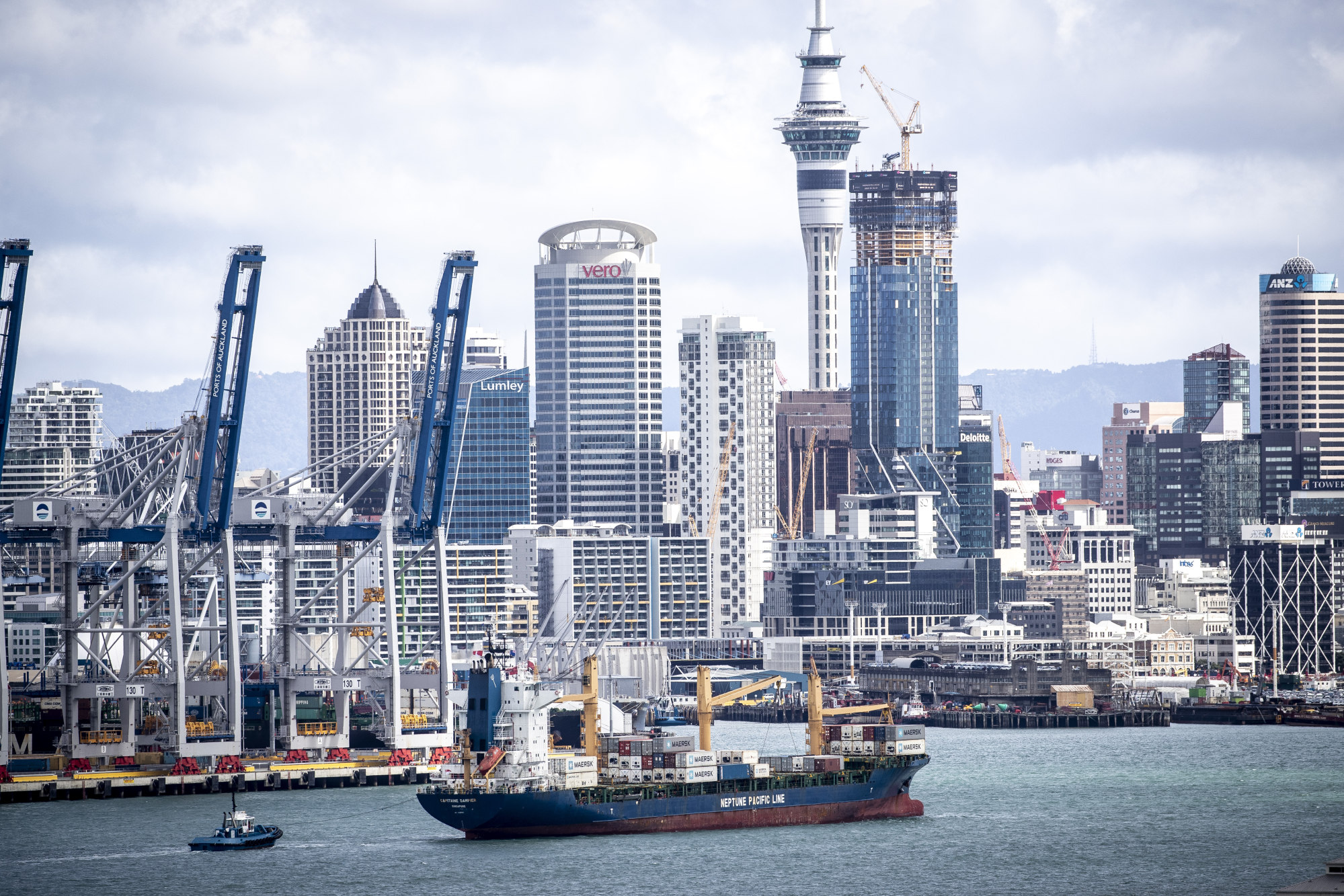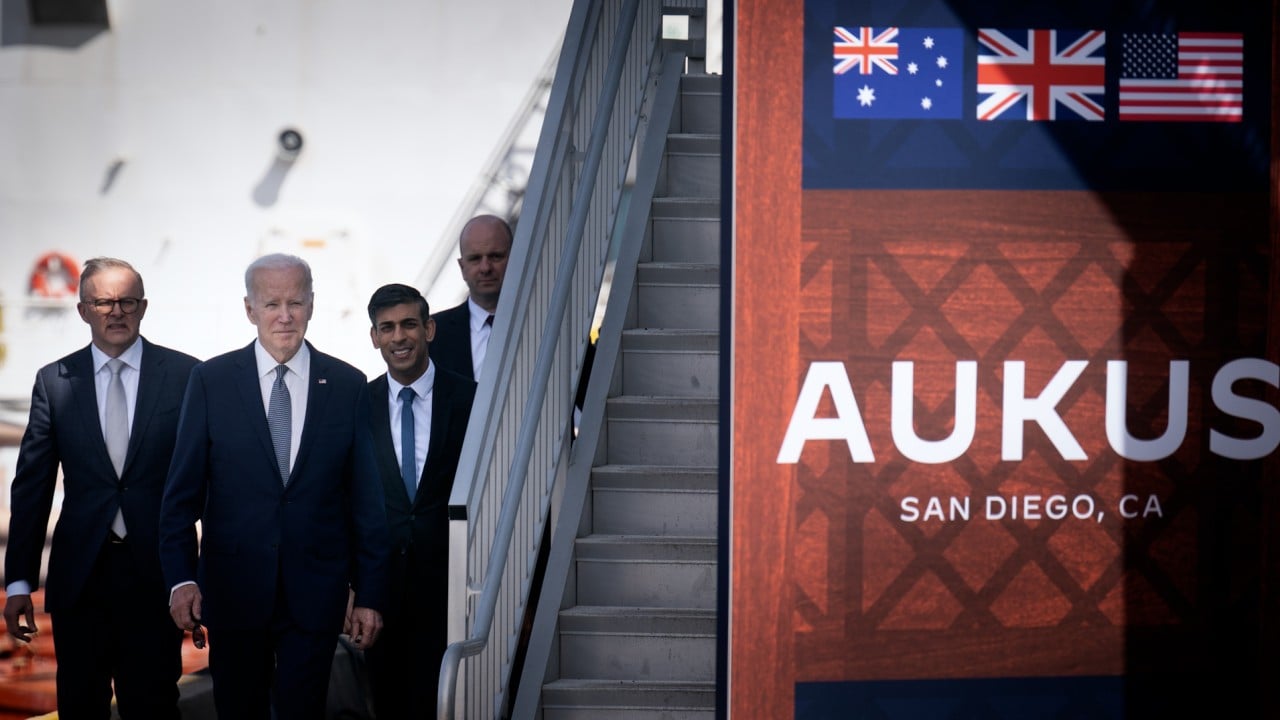Ahead of the poll, Luxon said in reply to a question about China that there would be no change in bilateral relations, adding that both his and the previous administrations were aligned on foreign policy and stood up for national sovereignty.
Guy C. Charlton, an associate law professor at the University of New England in Australia, said Luxon would approach ties with China based on pragmatism and mutual interests that involved a deep trading relationship, significant Chinese investments in New Zealand, and growing social and personal ties.
“He has not embraced the more robust anti-China rhetoric that has been used by other states or its security partners,” Charlton said.
Most New Zealanders are happy to do business with China provided it does not come at the expense of core political values such as respect for human rights
Robert Patman, professor of international relations at the University of Otago, said Luxon’s government could initially want to be “a little more pro-China than Labour was” but noted that the incoming prime minister’s political inexperience might result in internal and external constraints.
“Most New Zealanders are happy to do business with China provided it does not come at the expense of core political values such as respect for human rights,” he added.
“Externally, Luxon could face problems with his partners in the Five Eyes intelligence sharing partnership if he is seen as being too accommodating towards China,” Patman said, referring to the alliance comprising Australia, Britain, Canada, New Zealand and the United States.

Geoffrey Miller, a geopolitical analyst at the Victoria University of Wellington’s Democracy Project focusing on New Zealand’s foreign policy, said Luxon’s centre-right National Party was “very attuned” to its rural farming base.
The heartland had largely voted for the party in last month’s election after an unusual drift towards Labour driven by the popularity of Ardern, he noted.
At least seven farmers had entered parliament as National Party MPs, said to be the largest intake in many years. One of them, Andrew Hoggard, is the former president of Federated Farmers, a powerful lobby group.
“The rural sector, and particularly dairy and beef farming, remains incredibly dependent on the Chinese market,” said Miller, who is also a doctoral candidate at the University of Otago.

If New Zealand First leader Winston Peters is included, especially as foreign or defence minister, Miller said this could indicate “a stronger case for a more hawkish turn by New Zealand towards China, given Peters’ well-established pro-US and China-sceptic views”.
Peters served as deputy prime minister of New Zealand from 1996 to 1998 and 2017 to 2020, and foreign affairs minister from 2005 to 2008 and 2017 to 2020.
In 2021, the value of dairy exports to China stood at NZ$7.3 billion (US$4.3 billion), according to Statistics New Zealand. China is the world’s fifth-largest dairy market, accounting for 5.2 per cent of global consumption.
Nicholas Ross Smith, a senior research fellow at the University of Canterbury’s National Centre for Research on Europe with a focus on great power competition, said that after Nanaia Mahuta steps down as foreign minister, New Zealand’s use of indigenous concepts with China, “the so-called taniwha and dragon approach, will be less overt”.
In her first speech in 2021 on China-New Zealand relations, Mahuta had used two symbolic creatures, the dragon from Chinese and the taniwha from Māori mythologies, as a metaphor to outline bilateral ties.

Joining Aukus?
Aukus, a security alliance between Australia, Britain and the United States established in September 2021 as a counter to China’s growing clout, is largely aimed at supplying nuclear-powered submarines to Canberra to boost its attack capabilities in the event of a future conflict.
Pillar Two refers to the sharing of information in cutting-edge defence technologies, such as artificial intelligence, quantum computing and cyber capabilities.
Before the polls, Luxon reportedly said that “Pillar Two is undefined”, adding that “nobody knows what the hell it actually means”.
Noting that Pillar Two could provide some advantages to New Zealand by providing access to new technologies, Charlton said it was unlikely that any decision would be taken “in the near future” as Luxon would be focused on domestic issues.
University of Otago’s Patman said there would be “considerable risks” if Wellington joined the second pillar, as doing so “does not sit comfortably with an evolving New Zealand identity”.
“Such a move would [also] severely complicate Luxon’s plans to improve ties with China,” Patman said.
New Zealand’s foreign policy dilemma: independence or join ‘pillar 2’ of Aukus?
New Zealand’s foreign policy dilemma: independence or join ‘pillar 2’ of Aukus?
Smith from the University of Canterbury noted New Zealand had been described as a template for how Western countries should interact with China. “I doubt it would continue to be seen that way if it joins Aukus,” he said.
Another option to take some of the heat out of the debate could be for Washington to start another separate grouping for sharing advanced technologies, by including Aukus and countries such as Germany, Japan and New Zealand, he said.
It was established last year by founding members Australia, Britain, Japan, New Zealand and the US, with Canada, Germany and South Korea later joining as partners.
In any of these arrangements, however, China will loom large in Luxon’s calculations.


